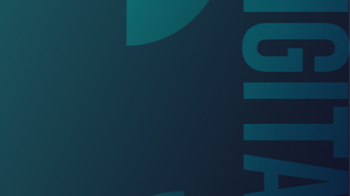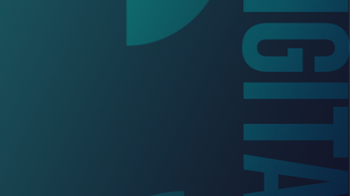Facebook: Digital Upfronts 2020
IAB UK
Catch up on Facebook's Digital Upfront covering the big changes the world as faced, the ways in which marketing has stayed the same and more
“If you’re tuning into this Digital Upfront, you’re one of 4,000 people to have RSVP’d, which must be a record,” said IAB UK’s CMO James Chandler, opening Facebook’s 2020 Digital Upfront. What followed was an in-depth look at how trends have accelerated this year across media, culture and commerce, the opportunities for brands in this new landscape and Facebook’s role as part of this. As Carolyn Everson, VP, Global Business Group at Facebook, put it: “Most of the trends that defined 2020 have their origins way before 2020, but they have accelerated exponentially.”
Here are five key takeouts from the morning:
The rules of marketing haven’t changed
A lot has changed in 2020, but the fundamental rules of marketing effectiveness endure, according to adam&eveDDB’s Les Binet. Getting the right balance of investment between activation and brand building is still key, paid media budgets still matter and advertisers still need to use the right media for each job. However, there are also new opportunities for brands that can afford to keep investing in ads. As Binet put it “a crisis is a buying opportunity” and those that set share of voice above share of market tend to grow: “For the companies with the cash and courage, this is an open goal.” In the current context, he advised those that can to “think like a start-up”, going activation heavy to begin with, before building up brand spend to the 60:40 ratio. With polarisation in media consumption between the generations becoming starker in lockdown, he advised advertisers to “combine online and offline media to maximise reach across demographics”.
Media planning is more important than ever
We were a digital society before the pandemic, but 2020 has undoubtedly accelerated digital trends. Ian Edwards, Facebook’s Communications Planning Director, told us that 3.1 billion are using Facebook’s platforms every month, 44% of adults are now using messaging apps and eCommerce has grown exponentially, However, as our behaviour has changed, there is more divergence in how different age groups are consuming media, explained Pete Buckley, Connection Planner at Facebook. In 2015, there was a 58% correlation in the media that 16-34 year olds and those aged 55+ spent time with. In 2020, that’s fallen to 21%, reaching 9% in lockdown. The reason? Social media is playing an increasingly important role for the younger generation, while TV continues to be a core medium for the older demographic. This polarisation means that smart and diverse media planning is more important than ever.
Get comfortable having uncomfortable conversations
How we improve diversity - both within the ad industry and advertising - is a conversation that has accelerated this year alongside wider cultural changes, including the growth of the ‘Black Lives Matter’ movement. As the focus on inequality and injustice “moves from the margins to the mainstream”, we need to get comfortable having uncomfortable conversations, said Zehra Chatoo, Connection Planner at Facebook. She added: “We have made mistakes at Facebook and we want to do better.”
The following panel brought together presenter and broadcaster June Sarpong, the Advertising Association’s Chairman Keith Weed and CEO of Media Trust Su-Mei Thompson, for a frank and fascinating discussion about how to address stereotyping, represent and resonate with diverse audiences, and what brands can do to actively initiate change. As Sarpong pointed out, advertisers need to take action now as the values of Gen Z and Gen Alpha will “demand that inclusion is built into the DNA of a brand”. Weed discussed the growth of the Unstereotype Alliance, and said that addressing a lack of diversity in advertising is both a “moral and commercial issue”. Meanwhile, allyship was raised by Thompson, who said that “brands need to really think what it means to be an ally” and, instead of co-opting the conversation, “forge partnerships with marginalised communities”.
Brands should exist beyond making money
Discussing brand purpose, Unilever’s Aline Santos, EVP of Global Marketing & Chief Diversity & Inclusion Officer, said that brands need to define what they stand for beyond making money. From mental health to tackling a lack of diversity to environmental sustainability, “consumers have high expectations of how brands should contribute to solve problems”. Yet companies need to integrate purpose into their brand position authentically, based on factors such as “heritage and product truth”. Santos believes that those that achieve this will inspire better work and attract the best talent.
What’s next? Discovery commerce
There were many new and emerging trends discussed throughout Facebook’s event - from the video opportunity via Facebook Watch, to the huge importance of data in shaping a brand’s strategy - but the acceleration of discovery commerce was singled out as one of the most important developments for brands to be aware of. With COVID-19 accelerating people’s mass digital education and business innovation, Edwards explained that the convergence of these trends is leading to the rise of discovery commerce. This is essentially the ability for products to find people and predict their needs, perhaps before they are even aware of what they need themselves. Describing it as “where machine learning meets human creativity”, Edwards predicted that discovery commerce and AI will fundamentally change the way we interact with brands in the future.
Related content
Digital Upfronts brings together top names for two weeks of virtual events
Learn moreStar talent announced for Digital Upfronts 2020
Learn moreGaming Upfronts 2020: Six things we learnt
Learn morePodcast Upfronts 2020: Six things we learnt
Learn more
Fast forward to 2030 with Futurescape
An in-depth exploration of the attitudes, innovations and media shifts that will shape the years ahead and redefine how we advertise by the turn of the decade



